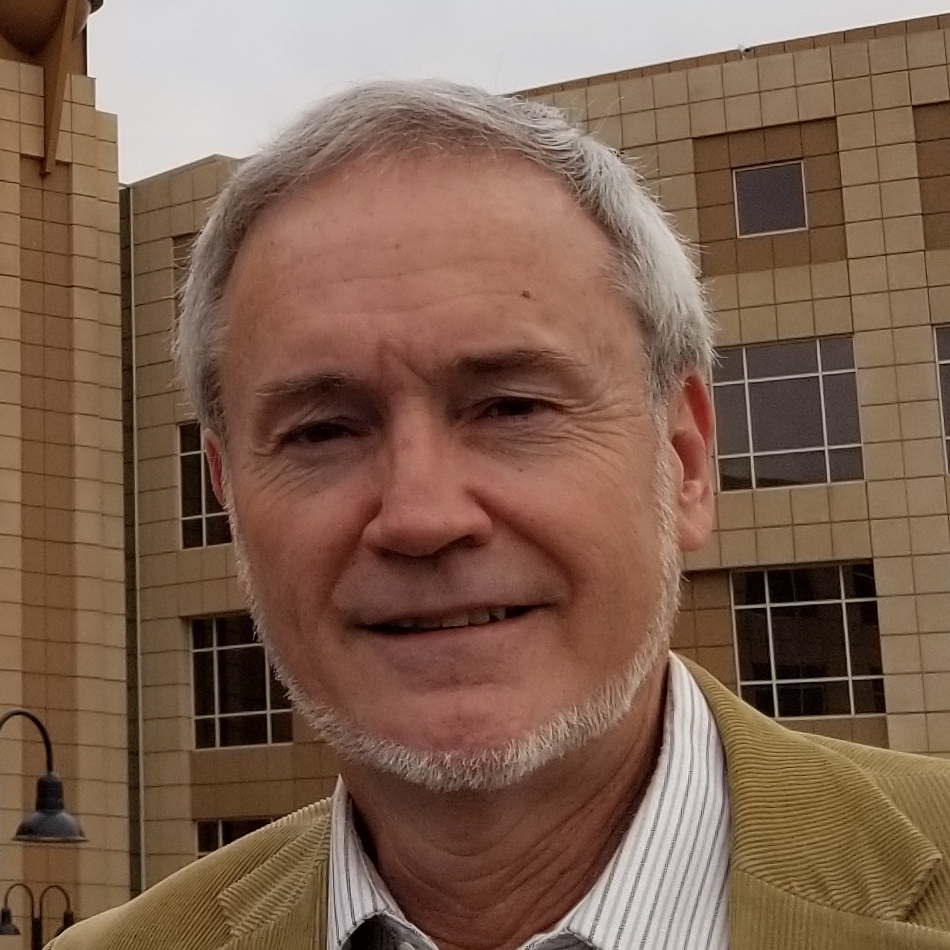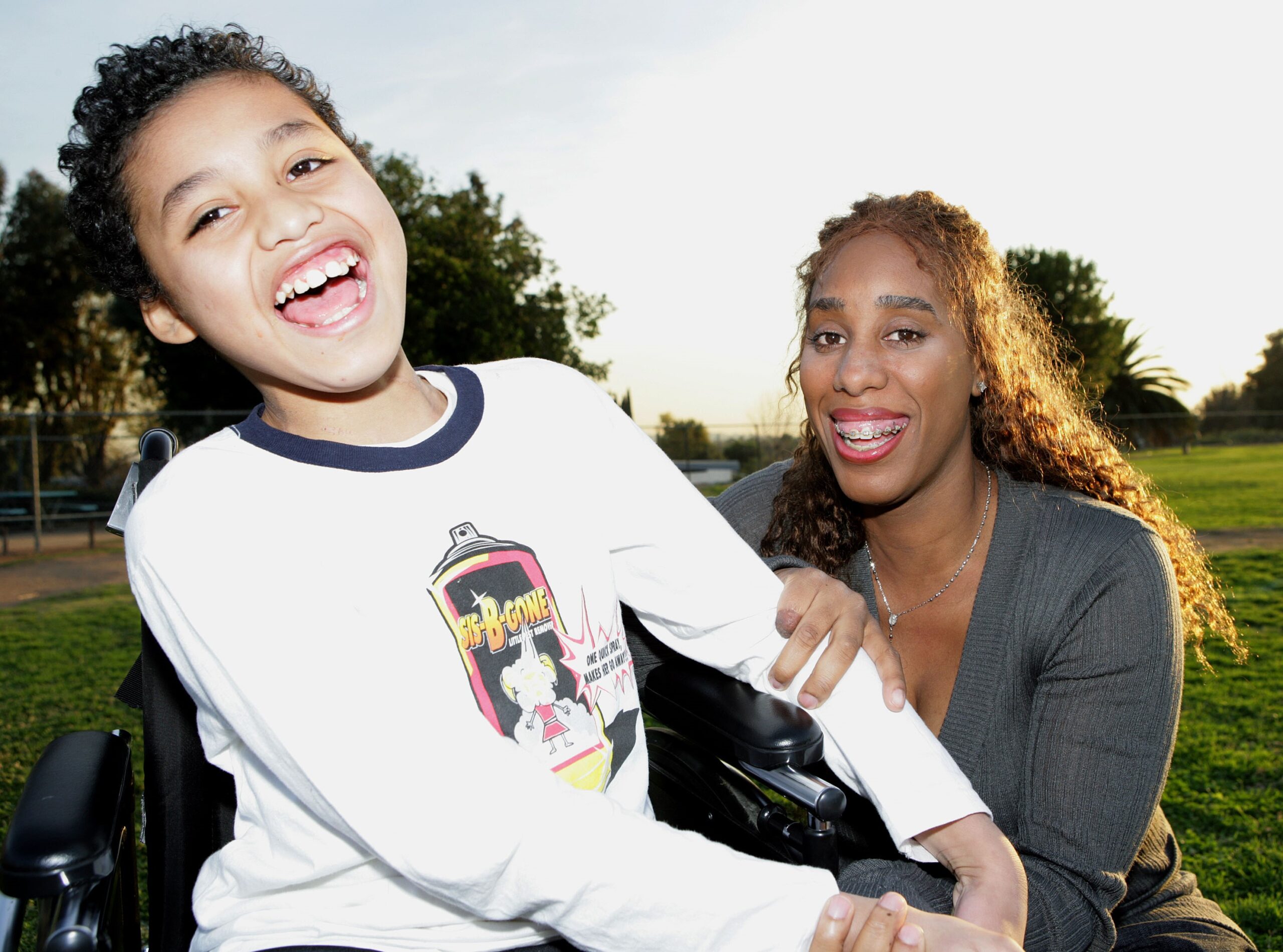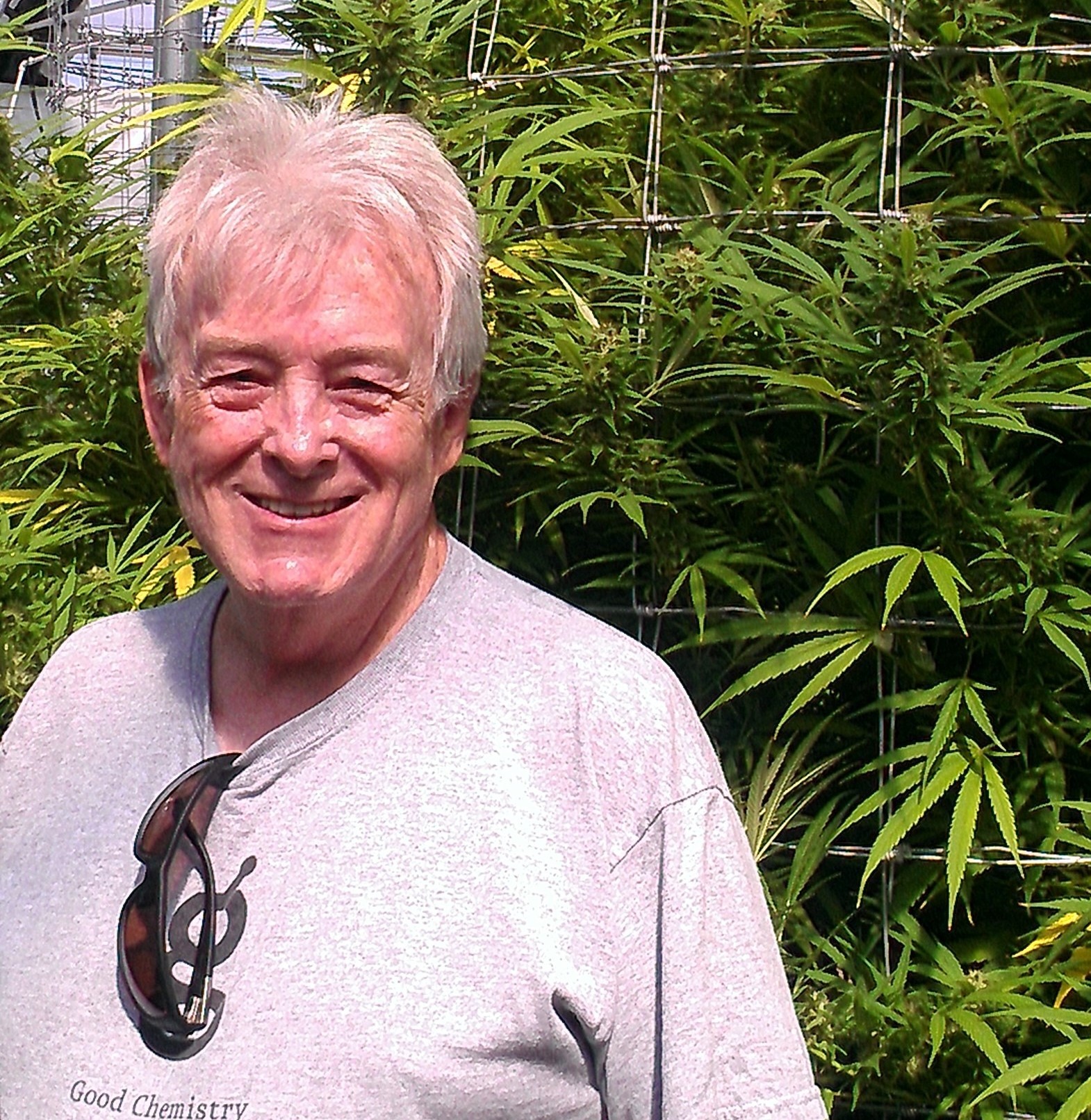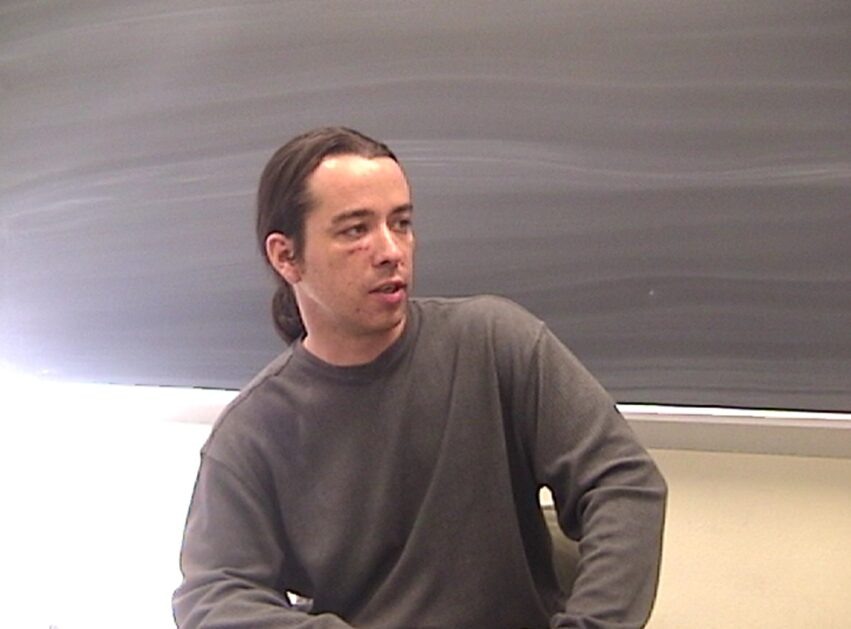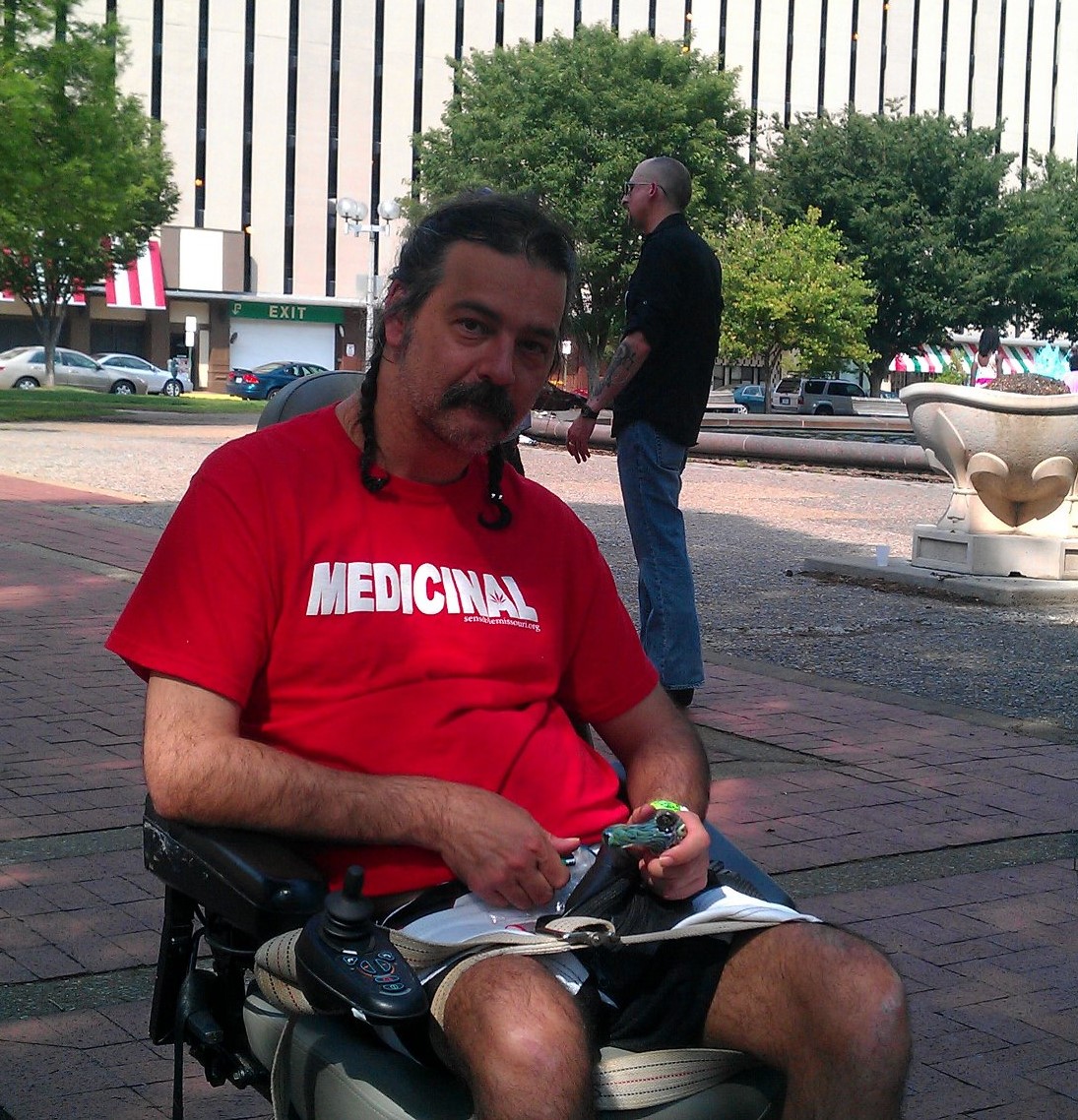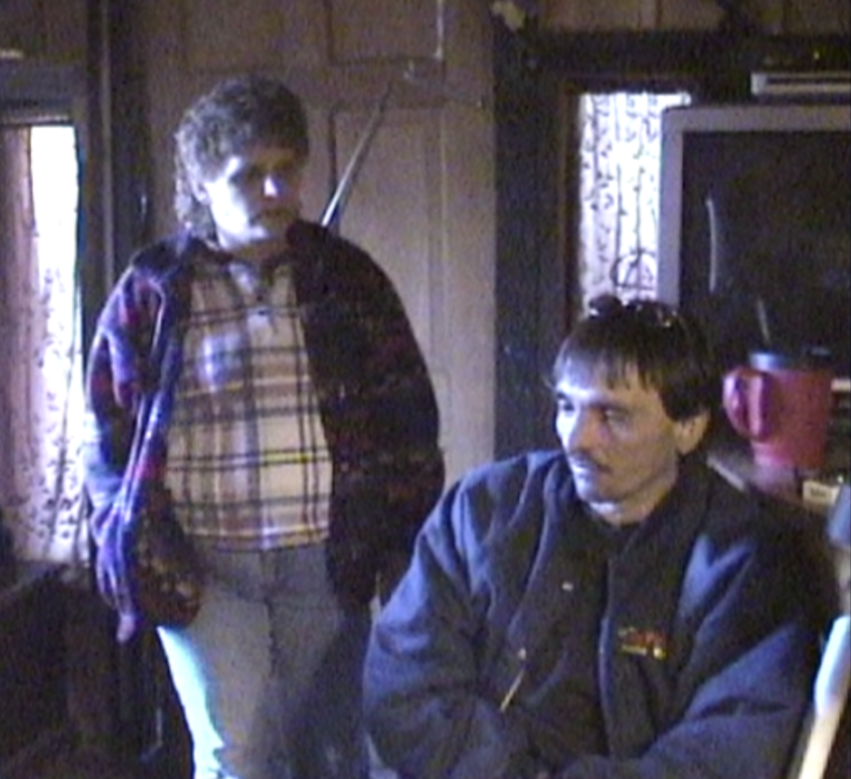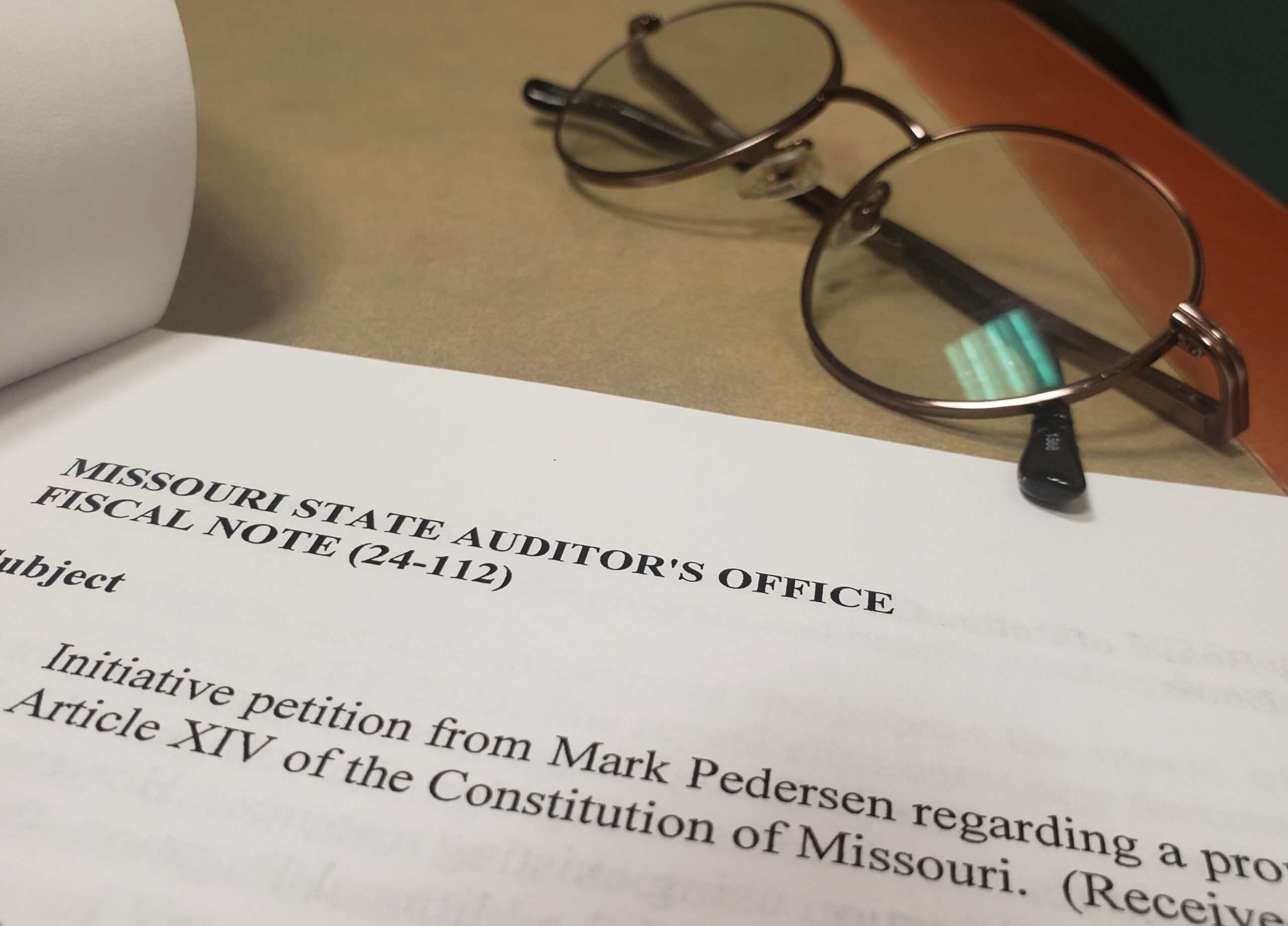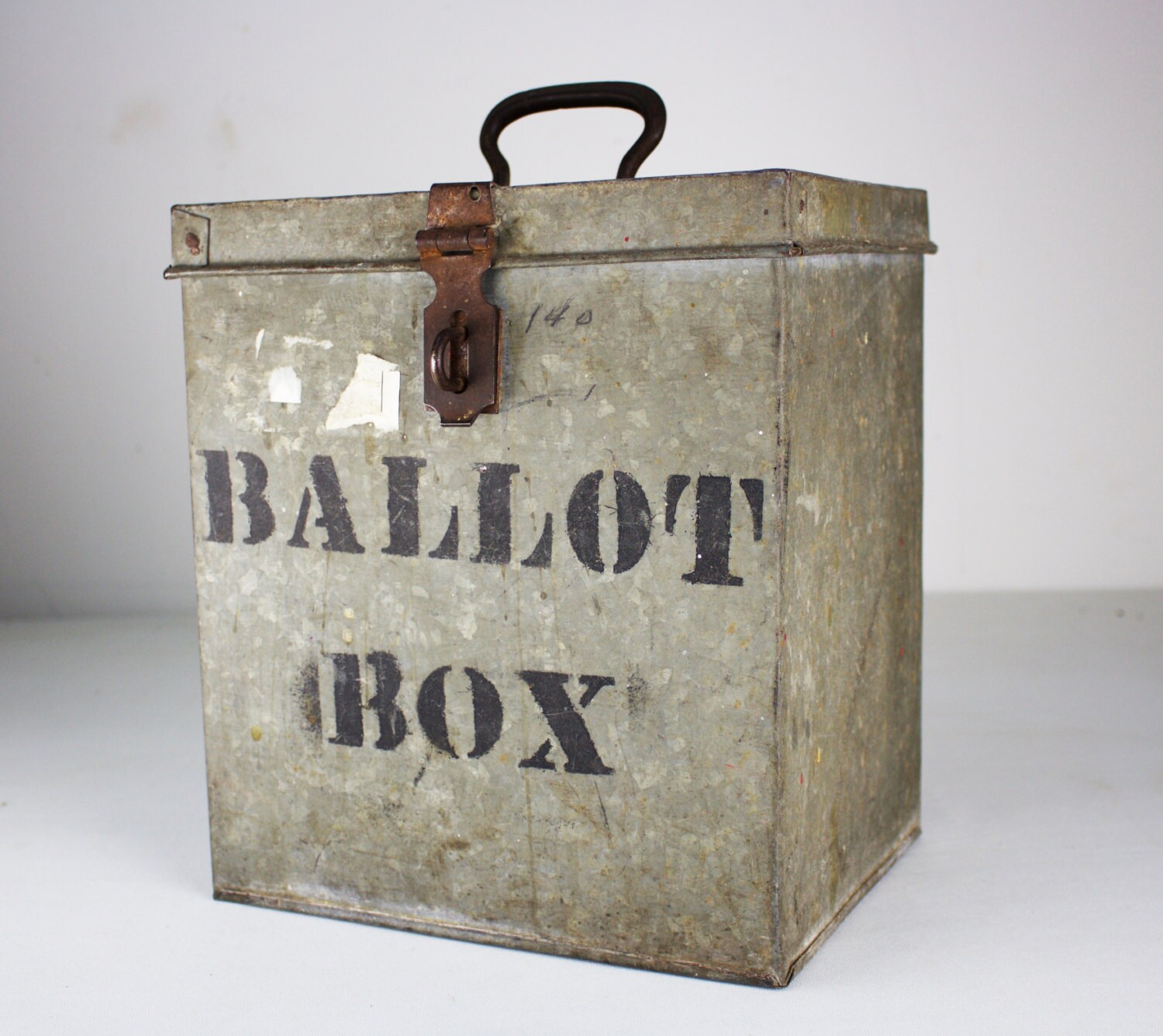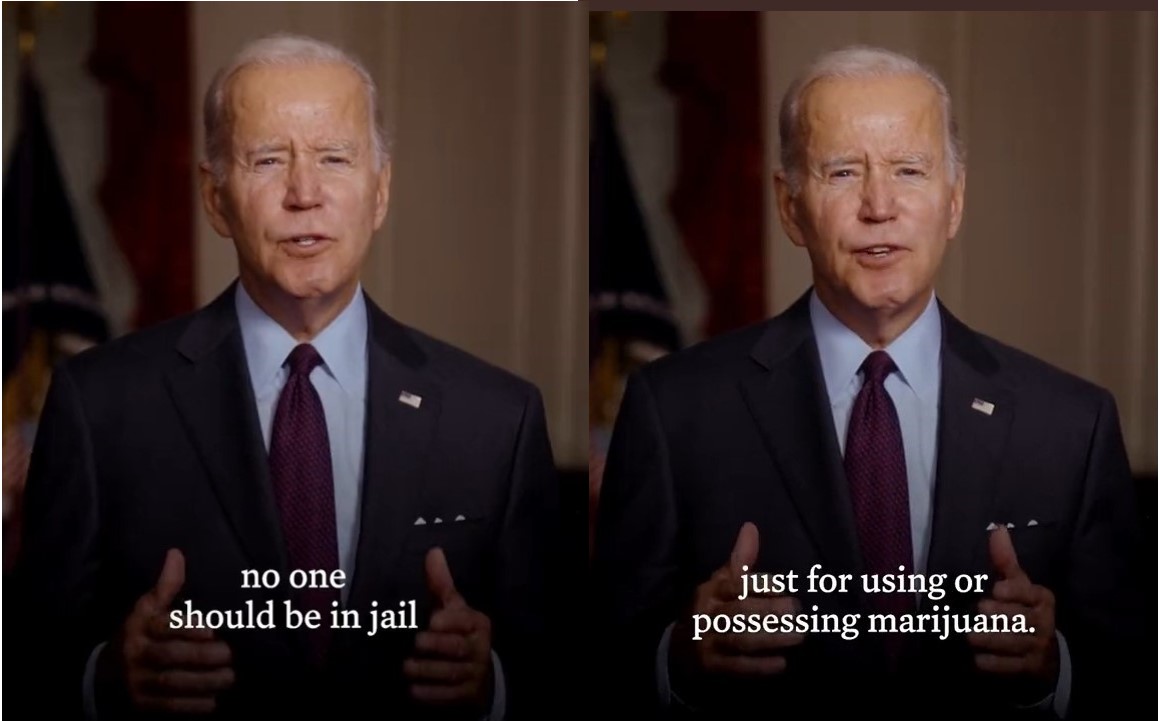This interview was originally conducted by Mark Pedersen and Ron Niehouse for the Medical Cannabis Journal Magazine on September 11th, 2010.
Mieko Hester-Perez is a Special Needs Advocate. She serves as President of CA Corporate & Attorney Services, Inc. Mieko is the Scientific Advisor for Cannabis Science and the Co-Founder of the “Unconventional Foundational Foundation for Autism (UF4A.org/). She is a Board Member for NORML’s Women’s Alliance and Educational Director for “From The Earth Collective” in California.
Mark: Could you give us a little background about yourself? What was your life like before?
Mieko: I’ve been a legal researcher for over 15 years. When Joey was diagnosed with Autism, I knew that a “9-to-5” would be impossible so, I started “CA Corporate and Attorney Services, Inc.”, a public document research and retrieval company so that I could make all of Joey’s appointments.
My son just happened to be my most important research project – not for money, but, so that I could aid him in the fight of his life.
Mark: What did you notice about Joey that led to that diagnosis?
Mieko: That’s one of those mother instincts. I knew immediately after Joey’s last MMR shots. Joey started saying “Mom” maybe two or three weeks before he received his last MMR shot. And Joey, after he had been given the shot, there was clearly some type of bad reaction.
Mark: What is this shot?
Mieko: It’s called the MMR. “Measles, Mumps and Rubella”.
Mark: I see.
The MMR vaccine, a mixture of three live attenuated viruses, came under criticism following a 1998 paper by Andrew Wakefield claiming that in a study, twelve children experienced Autism, among other disorders, following the vaccination. The paper has since been retracted.
Mieko: There has been a lot of speculation. Everyone’s entitled to their own opinion, but I know it happened to my son.
He started saying Mom. Then he stopped saying Mom entirely. There were certain immune issues. He didn’t have a normal bowel movement. He stopped making eye contact. He didn’t respond to people at all.
This is a very similar story told by most parents diagnosed with autism.
At the age of five, when he was placed on a regular program, his teacher recommended placing him on medication so that he could be more productive in her class. And, at the time, I was young. I was just doing what I thought was right. I placed him on medication.
But, I was aware of Dr. Bernard Rimland.
I did place Joey on a Gluten-free casein free diet.
Dr. Bernard Rimland, founded the Autism Research Institute in 1967 to conduct and foster scientific research designed to improve the methods of diagnosing, treating, and preventing Autism. Rimland expressed concern about the rise in Autism diagnoses and suspected that vaccinations might be among the causes. He sighted Thimerasol, a mercury-based preservative used in the vaccines, as a direct cause.
Mieko: I know why it was ineffective…looking back. He was on four medications at the time.
Mark: Do you recall what those medications were?
Mieko: They were the medicines commonly prescribed for Autism. There is a whole list of medications for children.
Mark: I understand he had no interest in food?
Mieko: Right. That is a common side effect of the medications. A year ago, he was diagnosed with anorexia – malnutrition – second to his Autism. And that was the result of five years of being placed on toxic medications.
There is no protocol for prescription medications for children diagnosed with Autism. Period.
Mark: What was the doctor’s actual diagnosis? I understand that there are different types of Autism.
Mieko: Autism! It’s pretty amazing. There is this one umbrella…Autism is so misunderstood… they just write whatever they want under that umbrella for Autism. There are so many degrees. I think what they’re doing is more damaging, rather than helping to understand the diagnosis.
What they’re doing is treating the symptoms. They’re treating the ADHD. They’re treating aggression and behavior. They’re treating self-injurious behaviors…with SSRI’s (Selective serotonin reuptake inhibitors – like Zoloft and Prozac). What they were giving him were mood altering medications. And that’s what they use to treat Autism.
Mark: I take it that the primary treatment revolved around pharmaceuticals.
Mieko: You’re 100% correct.
Mark: Did they attempt to do anything other than pharmaceuticals?
Mieko: No. No.
Mark: I understand at some point he was taking up to 13 medications?
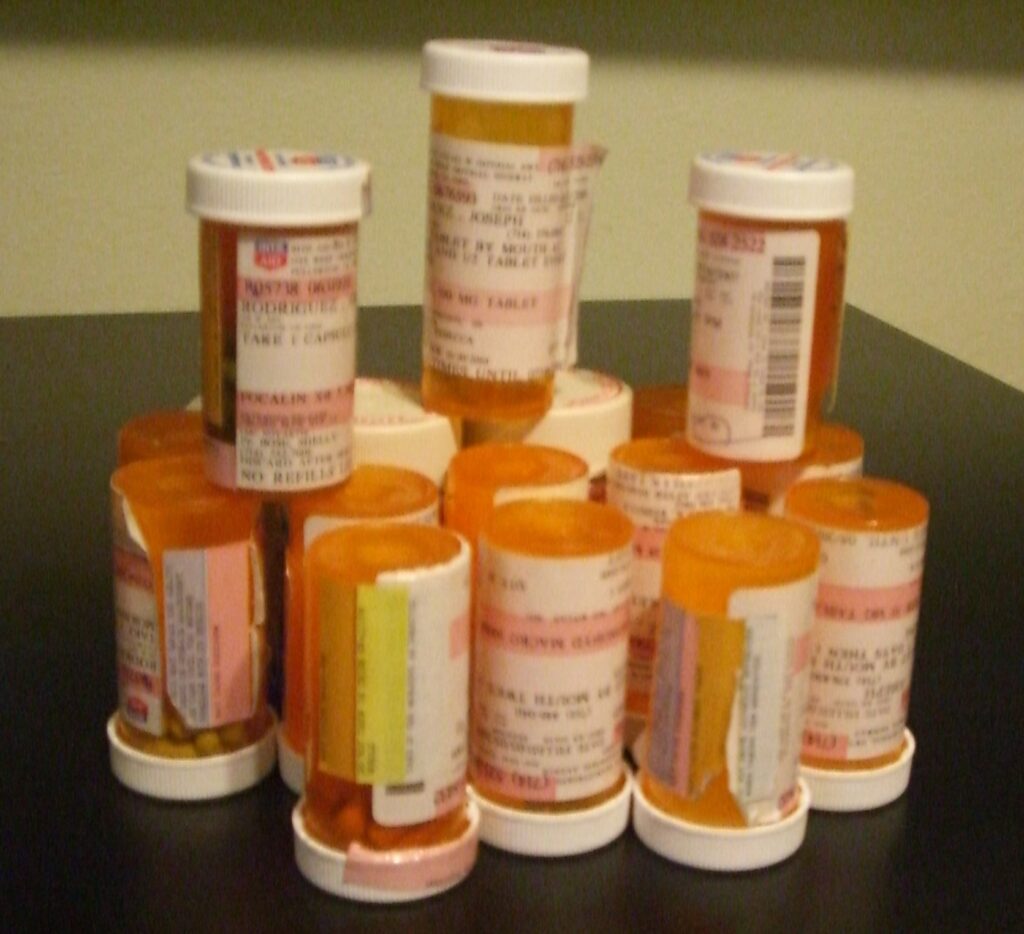
Mieko: As a total. Since he was five years old, he has been on thirteen medications within this pharmaceutical
prescription guideline. There’s a chart…what doctors should prescribe for certain symptoms. Now out of, I think, twenty medications, my son has been on thirteen of those and at one point he was on six medications at one time. He has consistently been on at least four medications. He has been on a total of thirteen medications that have varied in dosage.
Mark: Maybe we can touch base a little later on what those medications are. The reason I’m saying is I’m also working with some people here in St. Louis, Washington University, on a study regarding prescription drugs vs. cannabis. I try to get as much information on pharmaceuticals whenever I am interviewing a patient or caregiver.
Mieko: I have a chart that no one seems to know about. Joey’s doctor almost fell out of her chair when I showed it to her.
Mark: I see. What kind of chart?
Mieko: It’s a chart of all the drugs…Psychotropic medications for the diagnosis of Autism. You can’t find it now. It’s my personal chart now. It has check marks on it. I take it with me to appointments so Joey doesn’t get placed on
the same medications again. And so when I first showed it to Dr. Hedrick, she almost fell out of her chair because she had never seen it before.
Rebecca Hedrick, MD, is an Associate Training Director and Assistant Clinical Professor for the Department of Child and Adolescent Psychiatry for the University of California, Irvine Medical Center.
Mark: There seems to be so much gray area out there; so much mysticism surrounding Autism. In all the medicines that Joey was on, did he have any positive response to those at all?
Mieko: You know, some of them had occasions when they were very positive for maybe six months, but with 80% of them, Joey had a reaction that no parent would want to see. There have been occasions when he has had facial ticks, he has had seizures – he was never diagnosed with having seizures. You couldn’t take him off the medication because there was a fear that if you took him off too fast he would have a heart attack. I mean,
he was only seven years old!
Mark: Tell me how cannabis entered the picture.
Mieko: Well, Joey had to get dental surgery. I had to get him cleared for sedation because of the severity of his Autism. So I went to get him cleared with his Pediatrician. I don’t like taking Joey to the doctor – number one – because it’s very hard on me, very stressful for me to take him. But I took him to see his Pediatrician and we went down that long line of medications and Joey was on maybe four or five of them.
She said, “Ok, that would be why his blood pressure is up. He has anxiety.”
Joey was maybe 47 pounds. She did not question his weight. She justified all the medications that he was on. She said, “Yea, he is a little thin, but because of the severity of his Autism, he is not a candidate for a feeding tube.”
So, those were a couple of red flags that went up. And I said, “So, what do we do?”
She did not advise me to take him off any of the medications. She cleared him for anesthesia. She said, “Yea you’re right, Joey is very thin. It can only get worse.” She closed Joey’s file and walked out of the room.
That’s why one of my missions is to hold doctors accountable for the oath they take when they become doctors. And that’s to preserve life. My brother’s a fireman. When he had to say his oath…to preserve life…it’s no different.
How could anyone in their right state of mind clear my son for dental surgery, tell me “you’re right he’s thin” and then tell me that he’s not a candidate for a feeding tube because of the severity of his Autism… and justify ALL of those medications? To me, it just didn’t make any sense.
That day, after I left, I’m driving home in tears…I’m thinking, what do I do? She just told me, pretty much, if Joey continues, he’s not going to be here. And it’s ok? You know, there’s a whole generation of children that are lost if this is the way that a Pediatrician treats children with Autism… at a very prestigious hospital in Orange County.
So I came home. I was very tired. Mentally, I was very tired. I sat on the couch and…I don’t know what was on (television). I think maybe Cheech and Chong came on the tv.
I wasn’t an advocate for medical marijuana. I wasn’t an advocate for marijuana, period. It wasn’t a part of my life. I’ve never smoked. I was just laughing, and I said, “That’s what Joey needs to pick up weight.”
Just a joke. And then… within minutes I said,
“No, it’s NOT a joke.”
I went to the computer and I did some research. I just typed in “Autism and marijuana.” And there it was. A medical review from Dr. Bernard Rimland. I think I stayed up until five the next morning researching Autism and marijuana. The next day, I went to the library and did some hard core, brain trauma research. I was convinced. I knew this was my last hope. And so I came back home and made an appointment with psychiatrist, Dr. Rebecca Hedrick. At the appointment less than 48 hours later, I felt like I was pleading my case before the Supreme Court.
She said, “You know, Joey isn’t going to be here if we continue to keep him on these medications.” We’ve tried everything.
My poor son. We have had so many agencies in our home. I had a crisis unit in my home, direct intervention for his anger. I had Emergency Services in my home because my son was just so out of control. They were all documenting his weight, so, I had enough information and justification for everything that I did.
When I gave the information to Dr. Hedrick, she looked at me and I looked at her and she said, “I’m probably going to lose my job, but I’m not going to let you lose Joey.” And she wrote me an undocumented (cannabis) recommendation for Joey. That day, I began saving my son’s life.
Mark: So you began medicating him that very day?
Mieko: No. And here is where the collectives came into play. I had called quite a few collectives and this is one of the reasons why, when parents contact me, I literally walk them through everything. It took me four days just to find a credible collective.
My regular job, I do background checks. I check for compliance… I mean I obviously knew what to ask these collectives and was able to decipher, between the good ones and the bad ones.
Mark: Could you share with me some of the questions that you asked?
Mieko: The number one question was,
“Have you ever had a patient; a minor under the age of ten?”
And really,… they were scared. Oh God, the educational curve….unbelievable. No one was aware that marijuana could be used on a minor. They said, “Oh, you’re doing something illegal.” And when I asked them about caregivers’ licenses…
It was scary, that’s what it was. I could see where and why Los Angeles is having all the trouble with collectives. I could clearly see which ones were for profit and which ones weren’t. At least now…I mean I can call collectives that want in, that want to help. Those that don’t want to help, they’re in it for the wrong reasons. But that learning curve is one of the other reasons why I started the foundation and why I make myself so accessible to so many parents. If I’m going to be at the forefront of this treatment and movement, I want to do it right. Finding a collective that would deliver to our home discreetly was my first choice, I live in a family friendly community and this treatment should be no different than any prescribed medication.
The first day that we had placed Joey on the medical marijuana, within 30 minutes, our house was quiet, which is pretty unbelievable. Those were the earlier days where we immediately noticed the calming effect.
I have a two year old as well. Joey’s aggression was something that I wanted to curb. I mean, I wanted him to have a regular relationship with his siblings. And that’s exactly what we have right now.
We have our good days and our bad days. And they’re still going to fight over toys, but Joey is not going to throw anything at him. At the time, Joey had a behavioral plan at school that was put into place because he WAS hitting his teacher; pulling his teacher’s hair; throwing things. His aggression was ridiculous. It was something that, as he got older, would get worse.
Within six more months, there was a noticeable difference at school and at home as well. As this progressed, I started speaking out to more doctors. One of those doctors…Dr. Lester Grinspoon…so that I could understand more benefits of medical marijuana as well as understanding brain trauma. I did an interview on a Canadian Radio Show and what I thought was just another doctor, end up being “the doctor.”
Dr. Grinspoon is Associate Professor Emeritus of Psychiatry at the Harvard Medical School. Grinspoon was senior psychiatrist at the Massachusetts Mental Health Center in Boston for 40 years. Lester was the founding editor of the Annual Review of Psychiatry, and the Harvard Mental Health letter. Dr. Grinspoon is a foremost authority and author on the safety and efficacy of cannabis.
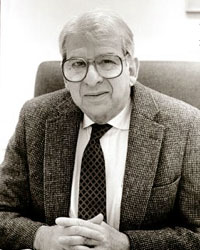
I was very fortunate to be able to speak to Dr. Grinspoon. Immediately the next day I was on the phone again and I continued to speak to him and share Joey’s results. Because I feel like I’m carrying the torch for Bernard Rimland who is no longer with us, I made a promise to Dr. Grinspoon that I would conduct myself in a very responsible way when presenting our findings with Joey and when helping parents.
Mark: Let me back up just a little bit. I wanted to ask you. How did you determine the level of dosage?
Mieko: That’s the million dollar question. I’m going to tell you what I tell parents. During the research on the strains…children who have Autism don’t have a problem with being hyper, so they definitely don’t need any Sativas at all. Sativas are not for children diagnosed with Autism, or, I believe, ADD. After researching Indica,
“Indica is the most appropriate type of strain for children diagnosed with Autism.”
Mark: What particular strains did you investigate? Which ones worked best?
Mieko: “L.A. Confidential” which is an 80/20. A lot the Kush strains. Those strains work very well. And those are the strains that I recommend for parents to try. Joey had anxiety and some of the reason most children diagnosed with Autism have anxiety…they have OCD….it’s one of the big ones, anxiety, and then also with the anorexia; malnutrition.
Within a couple of months, we started introducing Joey to new foods that we had never seen him eat before. I mean this is a kid who only would eat peanut butter and jelly for four years. So he was lacking a lot of nutrients as well.
I have been researching with Dr. Robert Melamede as well as Dr. William Courtney…nutrients that are found in the actual cannabis…I think that is why we are getting such positive results from Joey. And other parents are starting to learn more about cannabis…its true healing form.
Dr. Robert Melamede is an Associate Professor at the University of Colorado, Colorado Springs and the President and CEO of Cannabis Science, Inc., a cannabis- based, pharmaceutical company. Dr. Melamede is widely considered to be an expert regarding cannabinoids.
Dr. William L. Courtney has an extensive medical education that began with a Bachelor of Science in Microbiology from the University of Michigan. He also received his Doctor of Medicine from Wayne State University, and Interned for Residency in Psychiatry at California Pacific Medical Center and went on to earned his Post Doctorate in Forensic Examination and Forensic Medicine. Dr. Courtney is currently a member of American Academy of Cannabinoid Medicine, the International Cannabinoid Research Society, the International Association of Cannabis as Medicine, and the Society of Clinical Cannabis. Dr. Courtney has also been teaching Continuing Medical Education (CME) courses in clinical cannabis.
Mark: A lot of people don’t realize that cannabis is, in truth, a super food.
Mieko: Right. They have no idea that it is. Joey was on a Casein-free, Gluten-free diet in the beginning, but Joey’s body was already suffering. You can’t take anything out of a starving child. Now (Joey’s health has improved) since we’ve placed him back on the casein-free, gluten-free diet, it has done wonders. The diet has been more effective.
Medical marijuana is the super glutamate blocker. So if your child has Asperger’s or ADD, a casein-free, gluten- free diet would work for that child. I’ve heard recovery stories of children who had high functioning Autism…
For the children who don’t respond to the gluten free Casein free diet, cannabis, in its true form, has proven to be the “super gluten blocker.” I think that is one of the reasons why we saw a response so quickly. A gluten-free (wheat, barley, rye and oats) and casein-free (milk) diet eliminates these foods from one’s dietary intake.
The Autism Research Institute and other advocacy organizations recommend this treatment.
With Joey, we put it (cannabis) in his food (brownies), but we only give Joey a brownie once every three to four days. He can go as long as five days. The marijuana stopped the glutamate from processing. The glutamate that these children have is the reason that they have sensory issues. The reason they have ADD (Attention Deficit Disorder). So when you have the glutamate and you have something that is blocking it, you start seeing miracles.
But it’s not really a miracle, it’s science.
In the beginning, I would have thought it was a miracle until I did research on brain trauma and the glutamate factor. No body’s willing to come forward and talk about it publicly.
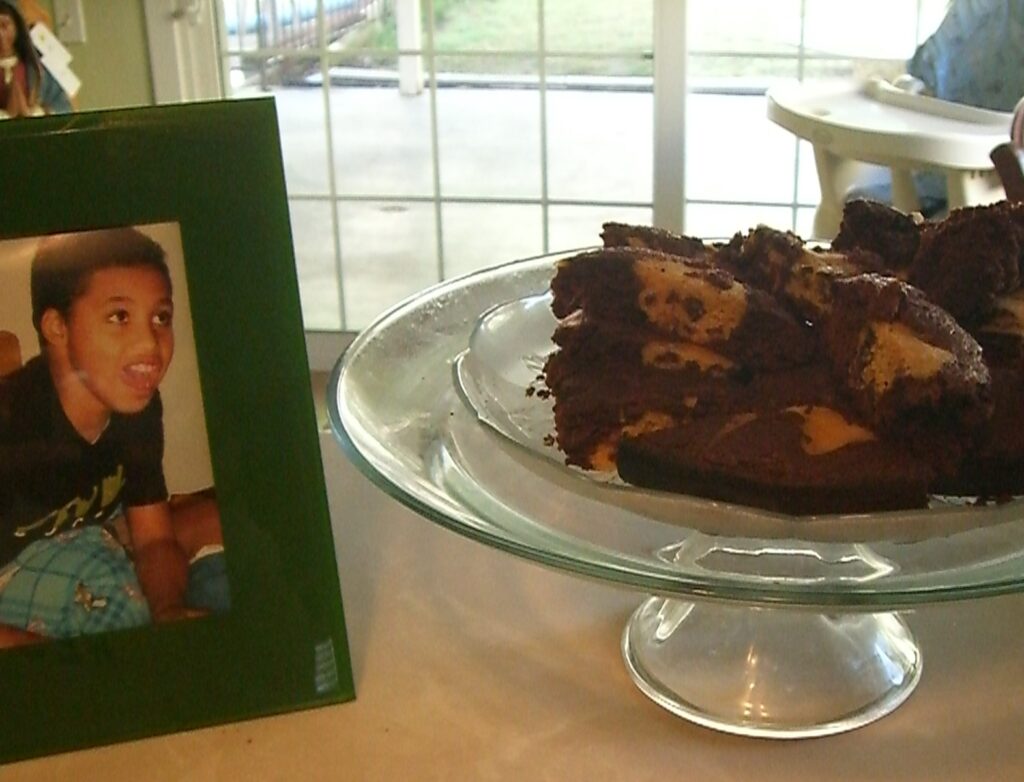
Mark: Tell me a little more about how Joey responded after you first started medicating him with cannabis.
Mieko: He had a personality. There was a little boy in there. His eye contact has improved. He laughs. He’s not on edge. The other medications put my son on edge.
Mark: How about his weight?
Mieko: Oh he gained, in a year, 50 pounds. He had gone from being in the bottom percentile of his age group, his growth chart…within eleven months, he was in the seventieth percentile. And just recently, we had a review of his behavioral plan and the chart showed that, within nine months, that behaviors completely went away that had been a problem for the last seven years.
Mark: And you believe this is all attributed to the cannabis?
Mieko: Yes I do.
Mark: What does Joey’s Pediatricians say about this?
Mieko: They are all pretty blown away. I get the same response. Either they are stuttering or they don’t want to make a comment. No. Dr. Rebecca Hedrick will tell you it’s nothing short of phenomenal. She’s followed the whole transformation herself.
Mark: I’m going to address a question regarding his cognitive function. In the ABC, Good Morning America interview (Nov. 23, 2009), Dr. Sharon Hirsch condemned your son’s use of cannabis by saying that Joey was, and I quote, “intoxicated.” She quoted some of the same old rhetoric that we have heard for so many years…”could lead to psychosis, schizophrenia, etc.” What do you say to that?
Mieko: Let’s see…I don’t think medical marijuana is researched in her state. I think she should of done her research, maybe she should have read our story.
Mark: Do you believe Joey is intoxicated?
Mieko: No. No. Everyone knows… a parent knows… any doctor. Children diagnosed with Autism have a completely different set of wiring. So what makes you or I “high”, will make Joey balanced.
Mark: Well, tell me. How is his cognitive function?
Mieko: Actually, he’s probably more on target than he’s ever been. This is the first time that we have ever seen progress within his education… period. Joey has had so many setbacks because of his behavior; so many setbacks.
In a meeting I had with his IEP (Individualized Education Program) staff three weeks ago, they had no idea when I started the medical marijuana. I really didn’t ask their opinion. But when they stated his improvement, I told them,
“You know what? For the last nine months, every Wednesday at 4pm, Joey receives a brownie. And the results that you are giving me, making progress for the very first time in seven years,” I had to thank them for collecting the data.
I mean, in seven years… I’ve been so used to hearing bad news that when they showed me all of the graphs, and said, “Joey’s made such a vast improvement within the last twelve months, not only with his demeanor, but even with being more productive in the class. He’s sitting down, whereas this time last year, he wouldn’t sit in a circle ….”
No one’s going to tell me that medical marijuana did not produce these results.
Mark: Have you seen improvements in his motor function?
Mieko: Yes. Now this is very interesting. One of the medications that he was on when he started at four years old. The side effects were muscle deficiency. Last year, Joey lost his ability to walk. and that’s the reason why a certain medical association is contacting me…because I have already told them I’m going to go forward (talking publicly) with the medication that attributed to his muscle deficiency.
Mark: I’ve seen the pictures of Joey in the wheelchair. That’s why?
Mieko: Right. And they began prescribing this particular medication to him at the age of three and half years old.
Mark: Are you willing to elaborate on what that one medication was?
Mieko: No.
Mark: Ok. That’s fine. (chuckle)
Mieko: Not without my attorney. But I mean…the medication did attribute to the cause. And they feel like my
voice carries so much weight now that it will shake up the pharmaceutical industry.
Mark: I understand that Susan Stevens Martin, Media Relations for The American Academy of Pediatrics believes that cannabis could be dangerous for children. I quote…
Mieko: She doesn’t have a child diagnosed with Autism.
Mark: … The American Academy of Pediatrics “… recommends the use of scientifically validated treatments.
“The use of medical marijuana to treat autism has not been tested and could be dangerous for children.”
What do you say to that?
Mieko: Call me.
Mieko and Mark: (chuckle)
Mieko: I have so many parents contacting me now. They call me on weekends. They call me all day long.
Mark: I find it amazing that its OK to treat children with very dangerous pharmaceuticals like Prozac, Ritalin, and Albuterol…for all the various illnesses that they do. And that’s OK. Even in spite of the risks, …the drugs Joey has been exposed to with his Autism. And that seems to be OK.
Mieko: I think the problem is because Autism is so misunderstood. The fact that someone like me, who doesn’t have a medical degree can figure this out, and that’s exactly what I’ve done. My voicemails are pretty interesting.
High profile doctors call me and become very frustrated once they realize I’m not giving up any information.
I have some of the best doctors across the country calling me to get advice. And telling me I am at the tip of the iceberg in figuring out the benefits to marijuana and the link between autism and brain trauma. How could that be? I mean, I put on my pants the same way they do. I think a lot of it is just there are so many kickbacks from the pharmaceutical industry. There’s so much politics involved.
No one wants to do what’s right. I have nothing to lose. Ever since I ’ve moved forward, it’s been one open door after another. After you save one life it becomes contagious…
Mark: You said in one interview that cannabis has “balanced” your son. What does that mean?
Mieko: Thirteen toxic medications put my son on edge. Only one medication has given my son life, and that’s medical marijuana. The balance is that my sons not trying to kill my two year old. Not only that, my son has now stable with his weight. He is better mentally now than he has ever been on ANY of the medications he was on.
And this is the reason I flood my website with information, videos…because seeing is believing.
Mark: If we could back up again, in the ABC interview, you made the statement that after medicating with cannabis,
Joey was “calm.” How is that different than being sedated?
Mieko: Sedated is “zombie-like.” (Chuckle) “Calm” for a child diagnosed with Autism is something you don’t hear very often. Calm is not throwing stuff. He’s not injuring himself. He’s not trying to dart out our front door. It’s a state that we don’t often see. Sedated to me is when you’re going for surgery and you need to be sedated… ”zombie-like.” My son is not “zombie-like.” It (cannabis) gave him life.
Mark: So he’s not in a stupor.
Mieko: No, he’s not.
Mark: How many prescriptions is he on now?
Mieko: He’s on two and a half. We just lowered a dosage last week. So ultimately, we are weaning him off of medications. Now there are some children that are in the spectrum that will always need medications. And that’s fine. I’m not against pharmaceuticals. I’m against A LOT of pharmaceuticals…for one little body.
Mark: How has cannabis worked in conjunction with those pharmaceuticals?
Mieko: It works perfectly. And they (pharmaceuticals and cannabis) work so well that we’re weaning him off the toxic ones. (chuckle) Dosages are being lowered as we speak. Because the cannabis is so effective, maybe one day we will be down to one medication. Or maybe we’ll continue to be on two medications, but we’re not going to have five medications. Five toxic medications.
Cannabis may not be for every child, but for those children who do respond and it proves to be effective,
“it definitely kicks ass!”
Mark: (chuckle) that’s not a scientific term but I buy it.
Mieko: I mean, you have to live in our home to understand. There are days when you feel like…first you get a diagnosis of Autism. Then the thoughts dealing with Autism. I feel like I received the one-two punch. All I wanted to do is make sure my son stayed alive for another couple of months. I did the research and it works.
The happiness we have in our family now…I want other families to enjoy that happiness. If I saw a family that was going through the same thing that I’m going through with Joey, there’s no way that I was going to keep it a secret.
I’m not into making money off of these parents. We are struggling… with healthcare, our regular bills, additional care… Companies making money off us, whether it be in donations to a useless cause or buying equipment at an astronomical price—just because it’s for a child diagnosed with autism. I’m bringing HOPE into to their lives because I value my happiness…every night that I see my son go to sleep. And if cannabis can provide that type of happiness, why not SPEAK OUT.
Now that Joey has a life, I have a life. I never even knew life because I was so consumed with work, appointments and more work and more appointments…it’s always been all action and no life for this mom!
A lot of parents have trouble embracing Autism. There are so many challenges involved. When you do find something that is effective, like I have found, you want to ensure that you can at least tell another parent because the pain runs so deep. I see it every time I’m out somewhere.
I actually had a moment when I was grocery shopping. There was a parent. She knew who I was, but she didn’t want to come over and speak with me. She just stood there in the isle. She had tears in her eyes. She looked at me, and I looked at her and she said “Thank you.” That was “the code”, because a lot of these are scared to talk about it.
Marijuana. You know the stigma. And that is also one of my missions; to remove the stigma and show the happiness that has been associated with finding cannabis to save my son’s life.
Mark: Mieko, we talked already about the side effects and problems you encountered in regard to pharmaceutical meds, so I have to ask,
“What about the side effects of cannabis?“
Mieko: Oh my God. Side effects? What side effects? Are you kidding me? We prayed for Joey to be quiet. We prayed for many years for him to go to sleep. One of the reasons he was put on medications was cause my son didn’t go to sleep. My son would stay up for three or four days and guess who stayed up as well. I did.
Since placing him on medical marijuana, I don’t know how to go to sleep. (chuckle) The side effects? Actually, its been more benefits than side effects. I can’t tell you a negative side effect.
Mark: Really?
Mieko: No. I cannot. The thing is, my son can now sit in his room for more than 60 seconds. His ADD (Attention Deficit Disorder) has been reduced dramatically. His aggression has been reduced dramatically. He sleeps very well. He wakes up in a great mood. He’s even started making sounds that we have never heard before. Now I think that’s due to our blocking the glutamate. The medical marijuana has opened up a receptor in his brain that no one is willing to admit other than the medical marijuana community.
The only thing that you could consider a side effect is maybe one or two times when I may have given him too much and he fell asleep. That was very early on. Trial and error, getting a proper dosage…and right strain.
Mark: Falling asleep. I kinda have trouble picturing falling asleep as a negative side effect.
Mieko: Considering the side effects that we were going through with medications… My son would have facial ticks that he could not stop and I had to sit there and watch and pray that the medication would wear off. People have no idea what that feels like. Or, to witness my son have a seizure. That’s what the pharmaceutical industry does not get.
The minute I speak, that’s what they need to fear, because we all have the same story. I’m just willing to go forward with it. And I have.
It’s a “win win” situation with me because my foundation is not to make money. It’s to help families. I’m their worst nightmare. (chuckle)
Mark: You have made the statement that “cannabis saved your son’s life.”
Mieko: And I’ll continue to say it. Those medications were killing my son. And I knew…and his doctor knew…we
only had a couple of months left at the rate he was going.
Mark: You founded an organization on behalf of children like Joey?
Mieko: I founded the “Unconventional Foundation for Autism” because everything that I have done has been unconventional, from my advocacy… to getting him the right resources to alternative medical treatment.
Initially, it was just for parents to contact me regarding medical marijuana; for questions and how I could help them. Just answering some of the popular questions, like, “Where did I find the research?” Well, you know, I had no idea that fifteen years of legal education would help so many parents. Just put them on the right track with being a better advocate for their child. Autism has made me a better parent. I feel that, instead of setting up Autism as a “fear mechanism”, we need to embrace it and embrace the many treatments that are involved.
The one thing that I have been very consistent in is not slamming all the other treatments because each child has different make-ups. The organization is put together to keep parents informed so that they know that they are not going to go to Hell if the treatment is medical marijuana.
Mark: Parents have contacted you. Are these people from California?
Mieko: They are all over the country… and International. I have had quite a few phone calls from Australia. Also calls from the United Kingdom. Oddly enough, the majority of calls are from non-compassionate states.
This is something that Governors need to really take a good look at because their constituents are saying that they want to move to more compassionate states so they can help their child.
“Autism has become an epidemic.”
Mark: What has been your feeling in regard to that? Are you finding that physicians are becoming more open to
recommending cannabis for children with Autism?
Mieko: I’m working with a few physicians. I work with Joey’s doctor. She’s on my Board of Directors now. I get quite a few phone calls from other physicians. I get a mixed bag. I get physicians who contact me who just want to inquire… just want to talk to me. And then I get physicians who…I get the skeptics. I just direct them to my website.
“Call me back when you can be more friendly.” (chuckle)
I just try to provide as much information as I can. The medical community is a little outdated. The fact that they can’t accept cannabis as a safe effective treatment for Autism let’s you know how dated they are. There’s no money in a cure and there’s no money in something that works safely and effectively. There’s money in fear. I don’t provide that and that’s the reason why my following is growing daily.
Mark: Have you encountered other parents who have seen positive response from medicating their children with cannabis?
Mieko: Yes. And adults. I had a parent just last week call me up and tell me for the first time in seven years her son was able to go to sleep without a fight. I had another parent who’s nine year old daughter did not attack her for the first time.
The testimonials…
I’ve also had some parents call and say, “It didn’t work well with my child.” And I say, “You know what, thanks for trying. You should feel good that you live in a state that would allow you to have this opportunity just to see if it works.”
I think I’ve had a mixed bag of parents but the majority that I speak with have gone farther and continue to be successful using cannabis.
Mark: Where do you see this all going?
Mieko: I believe medical marijuana very shortly will be on a list of safe and effective medications to treat Autism.
Mark: What do you think it will take to make that happen?
Mieko: It will take the APA (American Psychological Association) recognizing it (cannabis) and I will be working with them to move forward on recognizing cannabis as a safe and effective treatment for Autism.
Mark: Ron, do you have anything you would like to add?
Ron Niehouse is a long-time California Cannabis cultivator, activist and educator. He is the founder of the Medical Cannabis Journal and a close personal friend. Ron now resides in Hawaii, where his adventures continue.
Ron: Mieko, if you could say just one thing to our readers, what would it be?
Mieko: I’m working on getting collectives involved in my foundation. One problem parents have is health care and getting particular treatments approved.
Collectives can sponsor a child; …these collectives have stepped up to the plate and now they’re on board with sponsoring children through our foundation. The Hope Wellness Collective is sponsoring a child so they can receive ten aquatic therapy sessions.
So its not just about the medical marijuana. It’s about the alternative treatments, medical marijuana being one of them. H.O.P.E (Harmony On Planet Earth) Wellness Collective is located in Westminster, California. Collectives are often associated with negative stigmas. I have a list of the ones that I defend; the collectives that sponsor Autistic children. The healthcare system fails to provide innovative therapies for our children in need, so I just want to make a point. It’s vital that the medical marijuana community is involved in my foundation. I look forward to more collectives getting on board with our program.
Ron: I always found it ironic that it seems as though it’s the people that carry the most weight, people like yourself, that are the ones that really didn’t choose this.
Mieko: No. (chuckle)
Ron: I always thought that people like you that make the biggest difference didn’t set out to be a “Freedom Fighter.” However, you are paving the way for so many people. I respect that so much. Thank you.
Mark: I should have asked this earlier in the interview, but considering the high cost of healthcare these days and all the concerns being mentioned about that, what do you perceive, as far as cannabis is concerned, is its role in lowering the price of healthcare? Or do you?
Mieko: There’s no money to be made off cannabis. No one has figured the plan out. If they did figure the plan out, they would know that there is no money to be made. So what is going on here is because no one has put a budget report together that includes medical marijuana.
It’s been cost effective in my household. (chuckle)
Mark: Going with this, how has cannabis effected your financial situation as far as the cost of healthcare for your son; in regard to treatments and such…as opposed to before?
Mieko: Joey’s medications were $200 a bottle, five bottles. I was a single parent. I was paying all of this out of my pocket before he qualified for healthcare. The medical marijuana is no where near a fraction of what I used to pay.
It wasn’t until recently that I told my parents why I was broke all the time. A lot of us, a lot of parents are very ashamed.
It’s not only the prescriptions, it’s the whole Autism factor that is expensive for us. The equipment needed…simple things that we need…and the healthcare is just astronomical.
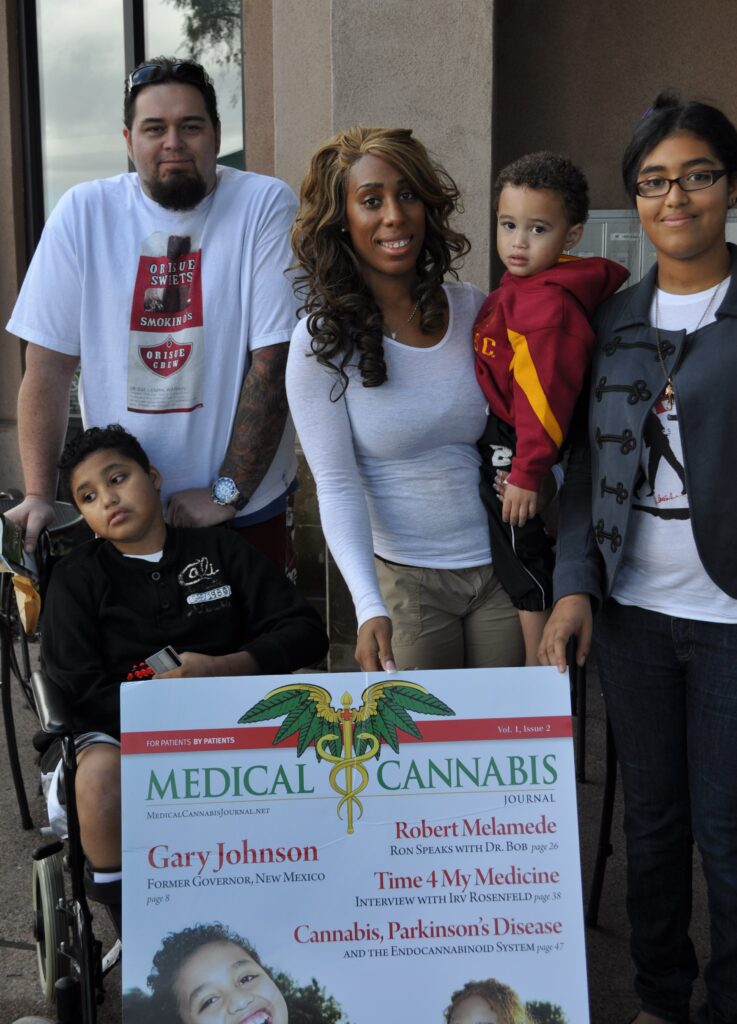
How much is a box of brownies? Two bucks? (chuckle) The cannabis, $60 or $80 in a month? I mean, I was paying almost five or six hundred a month on medications that were not covered.
Ron: That’s incredible.
Mieko: I mean, I couldn’t afford to live.
Ron: I was wondering, Mieko, do you use cannabis butter or how do you prepare Joey’s medication?
Mieko: I don’t use cannabis butter (purchased from a collective), because, typically, I haven’t gotten a grower yet who doesn’t mix everything together (different strains) in the butter. I’m better off doing the straining myself. I make my own oil because at least I know its one strain.
Mark: Thank you so much for this opportunity.
Mieko: You’re welcome. Thank you.
Ron: Thank you, Mieko. You’re wonderful.
One in every 150 children are diagnosed with Autism. That number continues to escalate at an alarming rate. To Date. Conventional science has not been able to identify the cause or provide a viable cure.
For more information about alternative treatments for Autism, please visit the
Unconventional Foundation for Autism (uf4a.org).
